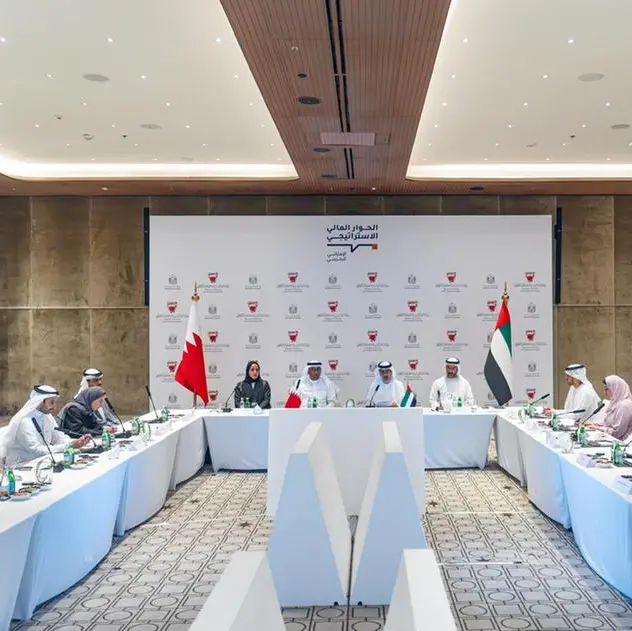PHOTO
Islamabad, Pakistan - The second International Islamic Economics and Development Conference successfully concluded today in Islamabad. Organised by the School of Economics at Quaid-i-Azam University (QAU), the conference focused on the critical theme of "Islamic Social Finance and Economic Development.”
The conference brought together a distinguished gathering of renowned scholars, researchers, policymakers, and industry professionals, including Professor Dr Niaz Ahmad Akhtar, Vice Chancellor of Quaid-i-Azam University; Justice Dr Syed Muhammad Anwer, Former Chief Justice of Federal Shariat Court and incumbent Alim Judge; Maulana Hamdullah Former Senator and Chairman of the Senate Standing Committee on Religious Affairs and Inter-faith Harmony; and Professor Dr Muhammad Tariq Mated, Director School of Economics at Quaid-i-Azam University Islamabad.
Eminent speakers and panellists delved into a wide range of topics, including Islamic banking and economics, Islamic social finance, SDGs and Maqasid al-Shari’a, and Islamic financing models including waqf. A common theme emerged in the panel discussion focusing on Islamic social finance and its implications to use tools like zakat, sadaqa, waqf, Islamic microfinance, and takaful to alleviate poverty, reduce inequality, and promote sustainable development. Islamic social finance prioritises community welfare and ethical practices, empowers marginalised communities and fosters inclusive growth. Fundamentally, Islamic social finance seeks to alleviate poverty and establish a more just society.
Islamic social finance sectors like microfinance and takaful (Islamic insurance) play a crucial role in community development by providing access to financial services and safety nets, fostering social and economic inclusion. However, the sector faces ethical dilemmas and challenges, including issues of transparency, accountability, and governance, which require careful attention to uphold its principles. Additionally, technological advancements are shaping the future of Islamic social finance by enhancing its reach, efficiency, and overall impact, paving the way for more effective and widespread initiatives.
Dr Humayon Dar, Director General of the Cambridge Institute of Islamic Finance, delivered a keynote address on Islamic Social Finance and Economic Development. He highlighted the crucial role of Islamic economics in promoting social equality and an ethical financial system. Dr Dar argued that the current global climate presents an opportune moment to introduce the principles of Islamic economic doctrine to a wider audience, particularly within the economics profession. The era of unfettered laissez-faire policies and the assumption of purely rational economic agents has come to an end.
Economics departments in developing countries, which often heavily emphasise optimisation theory within the context of consumption and production, are increasingly perceived as outdated. The focus has shifted from a blind pursuit of growth towards sustainability and responsible consumption. Excessive consumption is now widely regarded as unethical. Furthermore, the traditional emphasis on relentless economic growth has given way to a prioritisation of conservation and environmental protection.
“The countries and regions which were treated with some kind of arrogance by economists of the Indian sub-continent in general and Pakistani economists, in particular, have benefitted from Islamic banking and finance far more than what Pakistan has unfortunately been able to achieve. The countries in the GCC and Malaysia are now unrivalled leaders in Islamic banking and finance, housing a major chunk of the global Islamic financial AUM of US$ 5 trillion. Malaysia has successfully used Islamic banking and finance to liberalise its economy and to achieve financial inclusion for its less privileged communities. Indonesia is following suit of its neighbour.”
Quaid-i-Azam University (QAU) honoured Justice Dr Syed Muhammad Anwer, Former Chief Justice of the Federal Shariat Court and incumbent Alim Judge, with the prestigious Lifetime Achievement Award. This recognition celebrates his admirable role in authoring the landmark judgement on the elimination of Riba in Pakistan by 2028 by the Federal Shariat Court of Pakistan.
An MoU was also signed at the event between the Cambridge Institute of Islamic Finance UK (Cambridge-IIF) and the School of Economics, Quaid-i-Azam University (QAU) focusing on strengthening, promoting, and developing research, technical cooperation, continuing education, and community services. The two institutions will collaborate on a range of initiatives aimed at advancing Islamic banking and economics. These include joint training programmes tailored to the specific needs of professionals and students, as well as workshops, seminars, and conferences designed to raise awareness and educate stakeholders on critical aspects of the field. A core focus will be on capacity building, with specialised training sessions offered to both professionals and students. Training sessions will be delivered in diverse formats, including in-person workshops and online seminars, to accommodate varying learning preferences. Additionally, the institutions will exchange educational and research materials to support the creation of high-quality training content and enhance knowledge within the industry.
Cambridge IIF also reaffirmed its dedication to advancing Islamic finance through its commitment to finance the Centre of Excellence for Islamic Economy at Quaid-i-Azam University. This partnership underscores a shared vision for fostering academic and industry excellence in the field. Additionally, Cambridge IIF is proud to support the annual international conference on Islamic finance and is committed to the next edition scheduled for November 2025, which promises to bring together leading experts and stakeholders to drive innovation and collaboration in the global Islamic economy.
About Cambridge-IIF
The Cambridge Institute of Islamic Finance (Cambridge-IIF), based in the United Kingdom, significantly contributes to the global Islamic banking and finance industry. As an independent research centre, it leverages the academic prowess of Cambridge to engage in diverse research initiatives, particularly in regions where Islamic finance is fundamental to the economy. The institute is famed for its pivotal publications, including the Global Islamic Finance Report (GIFR), the Islamic Wealth Management Report, and the Islamic Finance Review (ISFIRE), each offering vital insights and analyses to professionals and institutions worldwide.
In addition to its research contributions, Cambridge-IIF underscores its commitment to professional development through educational programmes such as the Cambridge Islamic Finance Leadership Programme (Cambridge-IFLP) and the Cambridge Islamic Finance Structuring Master (Cambridge IFSM). These programmes are designed to enhance leadership and technical skills within the Islamic finance sector. Furthermore, in collaboration with Cambridge IFA, the institute supports the WOMANi Report, promoting female achievements in Islamic business and finance. Together, these initiatives highlight Cambridge-IIF’s role in fostering innovation and excellence in the Islamic financial services industry.
For more information or to engage with the multifaceted activities of the Cambridge Institute of Islamic Finance, please contact: info@cambridge-iif.com.




















